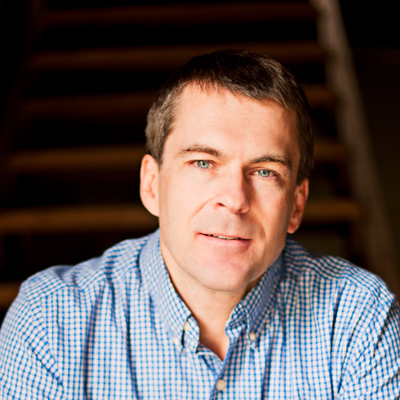
In a memorable Op-Ed piece (“The Moral Bucket List”), David Brooks ruminated on what he calls ‘the eulogy virtues,’ which he contrasts with ‘the resume virtues.’
“About once a month I run across a person who radiates an inner light. These people can be in any walk of life. They seem deeply good. They listen well. They make you feel funny and valued. You often catch them looking after other people and as they do so their laugh is musical and their manner is infused with gratitude. They are not thinking about what wonderful work they are doing. They are not thinking about themselves at all.”
I used this column to address our graduating seniors one year ago (“Embrace Place”), and President David Skorton used it in last month’s Cornell commencement address. I found myself turning back to it this week because of Louie.
Louie Rudin, Chesterton House Property Manager in residence, passed away unexpectedly on Sunday, June 7th, not long after his 63rd birthday. He was found in his room by some of the other Chesterton House residents on their way to church.
– – – – –
Louie was a lively presence, exuding contagious joy and laughter. He served on Young Life staff since graduating from Cornell almost 40 years ago, and though Young Life was the perfect vehicle for his skills and interests, his service to others was never merely a function of his job. He simply loved young people. And he modeled a way of being young at heart that marveled people half his age.
Louie led many young people to faith in Christ, and discipled and encouraged many more. In addition to his impact on youth, Louie was also a fixture on the Cornell and Ithaca College campuses for over a generation. To say he had a positive impact on a lot of people would be a gross understatement. He was always available, always interruptible. He touched many, many, many lives, and he will continue to serve as an inspiration for all who were privileged to know him.
– – – – –
Louie had a vast repertoire of stories from his many kooky capers. I have a story of my own about Louie—one that speaks volumes about his character.
When Louie applied to be a chaplain at Cornell (which is not a job, but an affiliation granted to many persons from all religions), his application was denied. I served on the committee that made the determination. I didn’t agree with the decision but got outvoted. Although the stated reason for the determination was that Young Life is focused on high school youth rather than college students, it was also abundantly clear that the committee chair did not appreciate Louie’s desire to introduce people to God. You’d think it’s the sort of thing that might be in a chaplain’s job description! But no—this faculty member thought that young people should be “free” to create or discover their own conception of God. (Never mind that, according to recent scholarship, “proselytizing” is the single most important variable in the emergence of liberal democracy and is arguably also “the single largest factor in ensuring the health of nations.” This scholar apparently couldn’t be bothered with scholarship.)
Here’s the thing: Louie was disappointed but not bitter. He expressed frustration to me in the immediate aftermath, and then he never raised the matter again. Ever. That, I would suggest, is part of the lesson of Louie’s life. It’s not just that we could all be a bit more joyful (though we could), but we would do well to let disappointments roll off of us and not drag us down. Come to think of it, those two things are surely related.
In God’s providence, this rejection actually may have released Louie to continue doing what he did best without institutional restraint. He was not an Organization Man. Even at Chesterton House, as long as the plumbing worked, I never required him to attend staff meetings. One of the last emails I received from him began “A special thanks to your sensitivity to my crazy schedule and the lack of necessity for my attendance at multiple meetings.” Yep. Some of us are called to build or work within institutions. Louie wasn’t. (Kudos to Young Life for accommodating his unique genius for so many years.)
– – – – –
Speaking of the Louie-ness of Louie, one thing that has stood out to me more than ever during the long days since his death is the appropriateness of his name. To me, there’s something about “Louie” that sounds like a grade-school-aged kid you might not want your child to play with (an impression based not so loosely on my own childhood next-door neighbor). And there was that element to him—not just youthful, but utterly unpredictable…not governed by the rules of polite society. But I’m also struck how the single, first name was always sufficient for recognition. He was like a Brazilian soccer star: Nobody ever seemed to say, “Louie Who?”
– – – – –
At Chesterton House, Louie fixed leaky roofs, built bunk beds, and inspired all around him to lead lives of faithful service to God in Christ—all at the same time. And he made people laugh—did we mention that?
When Louie first arrived at Chesterton House, I steered him toward the caretaker cottage. It’s cozy and cute and a stand-alone structure that affords some privacy. He might want to stay there, I thought, because—well—that’s where I would want to stay. “Oh, I don’t know,” he said. “I’m kind of an extrovert.” (Ya think?) “I’ll just live in the house.” A single then, Louie? “No, no, I’d actually prefer a double.” And so at the ripe young age of 62, Louie entered fully in, yet again, to the life of undergraduate students.
When Louie told me last month he was ready to move into a single, I told him he could have the largest single in the house. “Actually,” he responded, “I’d like Room 6.” Ah, yes, the famous Room 6—that would be the smallest room in the entire house. It’s basically a closet with a window. So he whipped up a loft and made use of the entire place…all 87 square feet.
– – – – –
Louie lived simply, with one notable exception. When I generated an employment contract that provided for one parking space, I might as well have been poking my finger in a leaking dam. Pulling into the driveway of Chesterton House this week, the first thing that catches your eye is his Volvo wagon…and his cargo van…and above all his 1966 Ford Ranch wagon. Three times the allotted number—not bad, for Louie. We recently found “Louie’s Lifetime Automobile Registry”: Over 50 cars, mostly from the ‘50s, ‘60s & 70s. Mostly Fords. What abourt Volvos, you ask? Well, the list is over 15 years old!
I expect Louie will be missed not only on campus but also at Hunts’ Auto, AutoZone, and Ithaca Foreign Car Service. Despite being a Cornell alumnus, he was more at home in a car shop than on campus. Ironically, his cars seemed to be in the shop so much you would see him walking all over town, traversing the hill that connects town to gown. He carried nothing with him. No books, no knapsack. Just his tattered baseball cap.
Speaking of which, Louie was the only sixty-something person I knew who could get away with wearing a baseball cap backwards and not look like a complete dork—or, better, not look like he was trying to be someone that he wasn’t.
– – – – –
I never spoke to Louie about Peter Pan. I don’t know that he ever gave Peter Pan a moment’s thought. And yet it’s hard not to ponder the connection. Despite the fact that he had visibly aged in recent years, there remained something almost preternaturally youthful about Louie—a resistance to aging for which Peter Pan is our common cultural referent.
Although Peter Pan is commonly associated with irresponsibility, Cornell history department chair Barry Strauss tells us we have misunderstood him. Peter Pan is a paradox, he says, and he is at least half Christian (named for St. Peter). Pan author J.M. Barrie “never preached eternal adolescence”—he adored childhood but “came down on the side of adult responsibility.” Peter Pan, Strauss says, is best understood as “untamed but upright.” That’s Louie, no?
David Brooks says that the people he most admires laugh musically while looking out for others. Barry Strauss says that Peter Pan simultaneously makes us long for childlikeness while sending us on our way toward adulthood and responsibility. These are the images that frame my memories of Louie.
– – – – –
I can’t say I have known anyone else quite like him. And isn’t that the beauty of God’s creation? Seven billion people, and none quite like Louie.
Louie is now in the unveiled presence of our Lord Jesus Christ. He has fought the good fight and finished the race. Today we join with others in the community and around the world giving thanks to God for Louie. “Precious in the sight of the LORD is the death of his saints.” (Ps 116:15)
We also ask for your prayers. The men of Chesterton House draw close to one another, and Louie drew close to many. His absence hangs heavily. The house is very quiet—quieter than it ever would be when he was there. The silence is loud. His absence will be felt to the same degree that his presence was felt. Which is to say, a lot.
– – – – – – – – – – – – – – – – – – – – – – – – – – – – – – – – – –
Obituary: Ithaca Journal
Memorial Service: Vineyard Church of Ithaca, 23 Cinema Drive, Saturday, June 13 at 2pm
Reception following the service will be at Chesterton House
Memorial Donations: At the request of alumni, and with permission of the family, a Louie Rudin Memorial Gift Fund has been set up at Chesterton House. You may donate online via Cornell and designate your gift in memory of Louie. Memorial Donations may also be made to Young Life.


